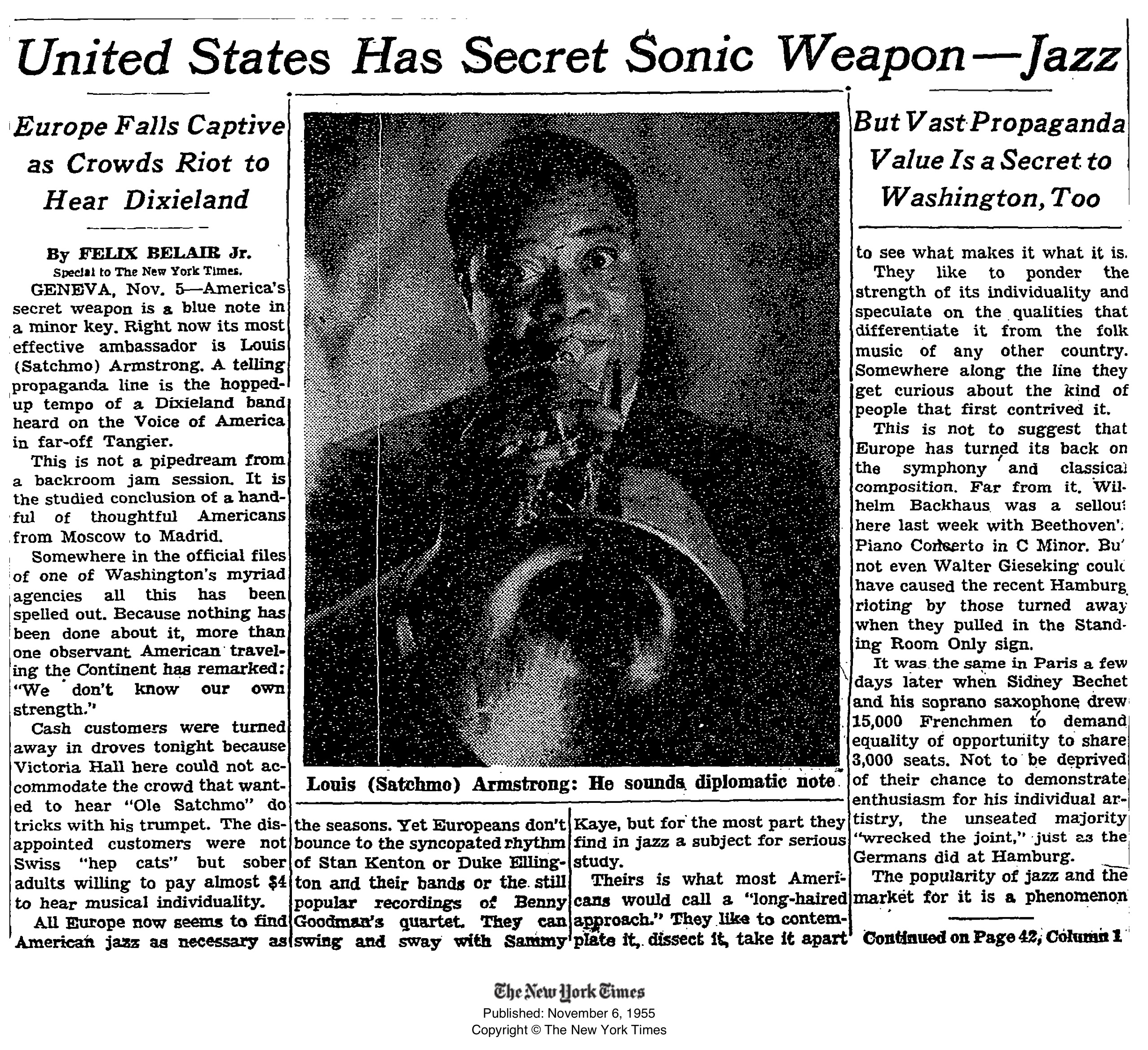Jazz came out of enslaved Africans brought to America against their will, where a combination of many factors led to the creation of a particular music. African music became a single identity, since many were stripped of their previous and distinct African cultures.1 Jazz in Europe, then, could be thought of as a music out of its homeland.
After WWII, however, jazz flourished throughout Europe especially after many toured as ‘Jazz Ambassadors.’2 Louis Armstrong himself (shown the newspaper article below) faced a dilemma in the midst of the Cold War: Should he work for the US in making allies with the Soviet Union? Should he be proud of the US, a country which did unbelievable harm to his people? Armstrong struggled with this publicly and likely because of it, never went to tour Europe under the US State Department.3 However, others like him did.4 
Duke Ellington was one of those who did go to Europe in 1963 under the State Department. The attached recording5
shows Alice Babs, a Swedish singer, soloing during one of Ellington’s shows. Shows like this were what the US wanted other countries to see: Equality and desegregation, especially when many different types of segregation were in play in areas like East Germany at the time. Even in an era of segregation, the US wanted to show (perhaps falsely) that they were more or less an ideal society compared to Russia and other Eastern European countries. Because of this show and many more like this, Europe got a biased view of racial identity and music in the US, and it is possibly a reason that jazz flourished in Europe after World War II.6
It’s particularly interesting that jazz was formed through a certain set of very sad and unique circumstances, yet, it was never broadcasted in that way. When brought over to a land where there still are acts of racist inequalities, although perhaps less talked about, an interesting case is set up to analyze the music’s development. The spread of jazz under US government support is another question for thought in a world of complexities.
1. Jones, Leroy. “Blues People.” William Morrow and Company, New York. 1963
2. Beliar, Felix. “United States has a Secret Weapon–Jazz”. The New York Times https://timesmachine.nytimes.com/timesmachine/1955/11/06/93808557.pdf?pdf_redirect=true&ip=0
3. “Sathmo Tells us off Ike, US! Armstrong Blasts Bias in America”. Pittsburgh Courier, 28 September, 1957
4. Jenks, J.P. Jazz dIplomacy: Then and Now. US Department of State. 30 April 2021 https://www.state.gov/dipnote-u-s-department-of-state-official-blog/jazz-diplomacy-then-and-now#:~:text=Jazz%20Ambassador%20heroes%20included%20Quincy,just%20to%20name%20a%20few.
5 PJJ. “Take it Easy – ALice Babs – Duke Ellington – 1963”, Youtube, 2:45 https://www.youtube.com/watch?v=mXm1SawjacI
6. Liebman, David. “Europe and its Role in Jazz” https://davidliebman.com/home/ed_articles/europe-and-its-role-in-jazz/
